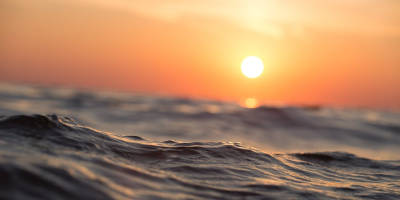← students

| First name: | Alberto |
| Last name: | Robador |
| Country: | Spain |

Thesis Subject:Long-term responses of anaerobic carbon mineralization during bacterial sulfate
reduction to induced temperature shifts in marine sediments
reduction to induced temperature shifts in marine sediments
| Education: | |
| Since May 2005 Ph.D. candidate at the Max Planck Institute for Marine Microbiology, Department of Biogeochemistry | |
| 2003-2005 M.Sc. in Marine Microbiology at the International Max Planck Research School in Marine Microbiology, MarMic (University of Bremen, Germany) | |
| 2002-2003 Research assistant at the Alfred Wegener Institute for Polar and Marine Research, Research Station Sylt, Germany (EU program -Leonardo Da Vinci-) | |
| Summer 2002 Summer student at the Max Planck Institute for Molecular Genetics, Berlin | |
| 2001-2002 Academic year abroad at the University College Dublin, Ireland (EU program -Erasmus/Socrates-) | |
| 1996-2002 Undergraduate - Double Degree in Biology and Biochemistry (University of Navarra, Spain) |
Scientific Interests and Goals:Scientific interests
-Effects of global warming, at the scale of predicted climate change, in the anaerobic oxidation of carbon in marine sediments
-Ecophysiology of psychrophilic bacteria
-Diversity and phylogeny of sulfate-reducing bacteria
Goals
The study of the ocean’s carbon cycle is crucial for the understanding of global climate change. In the Arctic Ocean, some of the most pronounced effects of climatic temperature increases are expected. On continental shelves, a large fraction of the organic matter produced by primary production is exported from the photic zone to the seafloor and is oxidized by anaerobic benthic sulfate-reducing bacteria to CO2 and nutrients. A temperature increase, at the scale of predicted climate change, affects the stability of microbial communities and the benthic metabolic pathways, and therefore, the magnitude of the mineralization of organic matter. Hence, the net flux of CO2 between the oceans and the atmosphere might also be affected. The goal is to assess long-term effects of temperature shifts in sediment collected from three different habitats: a permanently cold (Svalbard), a seasonally freezing and thawing (Svalbard) and a temperate environment (North Sea).
-Effects of global warming, at the scale of predicted climate change, in the anaerobic oxidation of carbon in marine sediments
-Ecophysiology of psychrophilic bacteria
-Diversity and phylogeny of sulfate-reducing bacteria
Goals
The study of the ocean’s carbon cycle is crucial for the understanding of global climate change. In the Arctic Ocean, some of the most pronounced effects of climatic temperature increases are expected. On continental shelves, a large fraction of the organic matter produced by primary production is exported from the photic zone to the seafloor and is oxidized by anaerobic benthic sulfate-reducing bacteria to CO2 and nutrients. A temperature increase, at the scale of predicted climate change, affects the stability of microbial communities and the benthic metabolic pathways, and therefore, the magnitude of the mineralization of organic matter. Hence, the net flux of CO2 between the oceans and the atmosphere might also be affected. The goal is to assess long-term effects of temperature shifts in sediment collected from three different habitats: a permanently cold (Svalbard), a seasonally freezing and thawing (Svalbard) and a temperate environment (North Sea).


